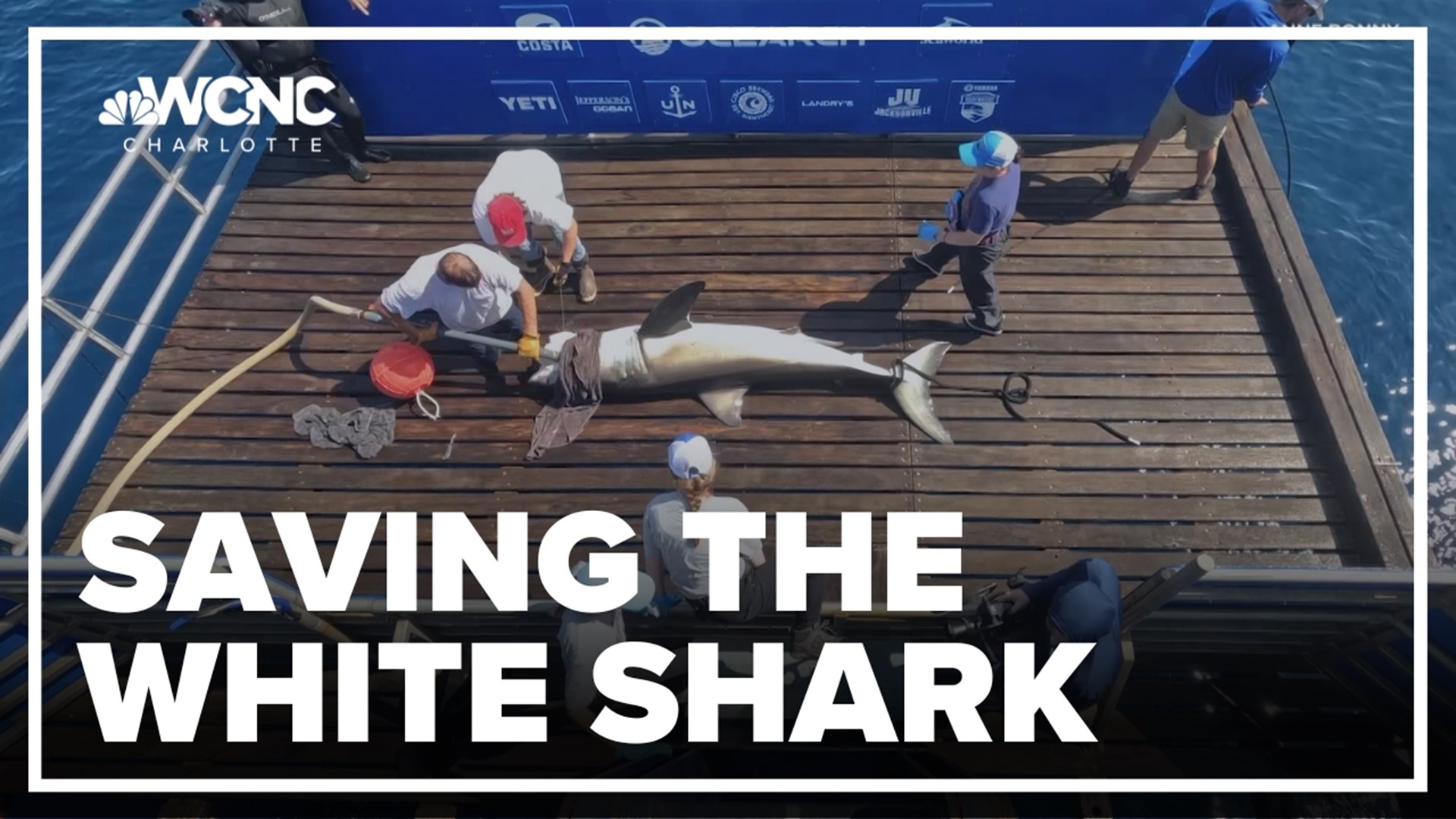CHARLOTTE, N.C. — Shark Week is here to take a bite out of television programming as people flock to learn about the apex predator of the seas and its critical role in our oceans. There's a leading organization at the forefront of some of the most groundbreaking work to increase the great white shark populations around the world.
OCEARCH said they have led more expeditions and collected more data on sharks than even legendary explorer Jacques Cousteau.
When founder Chris Fischer learned the globe was losing 200,000 sharks a day and 100 million a year, he knew he needed to do something to keep the ocean's ecosystem balanced. Without the prevalence of sharks in our ocean, Fischer feared fish stocks around the world would suffer.
Fischer told WCNC Charlotte that white sharks are back on the East Coast of the United States
"There is an abundant future for our kids," he said. "There are nine white shark populations around the world. If we can manage all 9 of them back, will manage global abundance."
To help educate the public, OCEARCH launched the Global Shark Tracker offering a fisheye view of science as it happens.
The tool allows the public to "understand the nursery and how it expands," Fischer said. The tool can be used to track the movement of the sharks, including tracking their birthing and mating patterns.
Fischer's latest expedition took him off the coast of North Carolina. On that trip, they studied 100 sharks and sampled 92 of the animals. He described the animal's population as "slowly recovering."
Right now, the sharks in the north are putting pressure on seals, Fischer explained. The sharks to the south are doing the same to squids, he said.
"The oceans are working as it provides two-thirds of our air and all of our water," Fischer said.
RAISE YOUR WEATHER IQ: Oceans help us mitigate climate change. But is it enough?
Fischer believes they have a blueprint for sustainability.
The global nonprofit and the people behind it are on a mission to restore balance across our oceans and keep the fish stocks plentiful for generations to come.
Contact Colin Mayfield at cmayfield@wcnc.com or follow him on Facebook, Twitter and Instagram.

